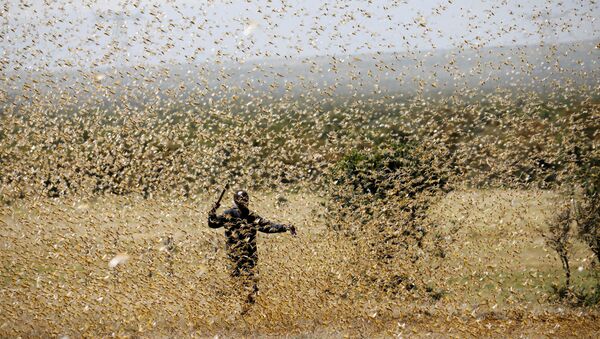Beginning late last year, Kenya, Somalia and Ethiopia were among the many countries hit by massive swarms of desert locusts that appeared following a particularly wet cyclone season.
In an attempt to brace for the next wave of desert locusts, the three countries have been spraying crops with pesticides. However, stocks of the repellents - particularly in Kenya - are now running low, and both shipping and production have been disrupted due to COVID-19 restrictions.
"If we fail in the current [regional] control operations, because of lack of pesticides, then we could see 4 million more people struggle to feed their families," Cyril Ferrand, the FAO’s head of resilience for Eastern Africa, told Reuters on Thursday. He noted that pesticide stocks in Kenya would run out within the next few days.
To make matters worse, the UN revealed last month that the desert locust, which can eat the equivalent of its body mass in fresh food daily, stands to endanger the food security of some 25 million people due to favorable breeding conditions.
"They are very active, very voracious, and very mobile," Ferrand said, referring to the second wave of locusts.
"If we don't have pesticides, our planes cannot fly and people cannot spray, and if we are not able to control these swarms, we will have big damage to crops."
The FAO official said that the organization is now attempting to obtain pesticides for Kenya from a local source. Like Kenya, Somalia is also experiencing delayed shipments, according to Ferrand, who also noted that Ethiopia was able to receive the necessary chemicals before shipments were disturbed.
While the FAO has been able to raise $111 million of its $138 million goal, the rate of contributions to combat locust swarms has significantly declined in recent weeks, with only an additional $6 million pledged since mid-March.


